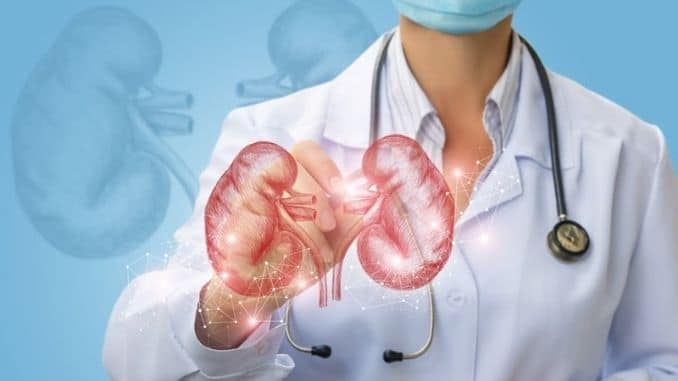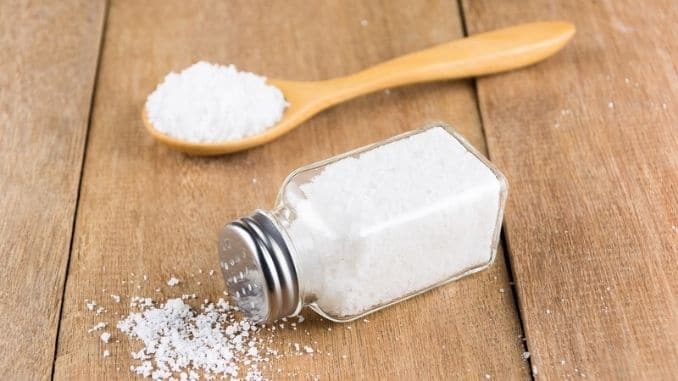
Do you take your kidneys for granted? Your kidneys are an integral waste filtering system for your body. You probably don’t give them a second thought.
According to the American Kidney Fund, an estimated 10 percent of the adult population has chronic kidney disease, yet most of them don’t even know it.
Are your kidneys as healthy as they should be? Keep reading to find out if you’re missing some warning signs about your kidneys’ health.
10 Warning Signs of Potential Kidney-related Health Issues
It’s easy to overlook the potential signs of kidney disease. However, your body gives you clues that something is not right. Look at these signs that you may have a kidney condition.
1. Trouble Sleeping
Everyone has a restless night from time to time. However, you can have difficulty sleeping if toxins build up in your blood. In addition, scientists have linked sleep apnea and chronic kidney disease, which is another reason why you may not be getting a good night’s rest.
2. Dry, Itchy Skin
The kidneys filter and remove wastes from your body. It also helps balance nutrients and minerals in the blood. However, when the skin gets dry and itchy, it may be a sign of bone and mineral disease. This condition may develop because the kidneys can’t remove excess urea and phosphorous from your blood properly, and it’s often a sign of advanced kidney disease.
3. Feeling Lethargic
When your kidneys are not working properly, toxins and impurities can build up in the blood. This buildup can make you feel weak and tired all the time. You may also have problems concentrating on things. Furthermore, anemia is a complication of kidney disease and may cause weakness and fatigue.
4. Foamy Urine
If your urine is foamy and you have to flush the toilet a few times to make it go away, it may be a sign of kidney dysfunction. Excessive bubbles resembling scrambled eggs is an indication that there’s protein in your urine. The protein, albumin, is also commonly found in eggs. Healthy kidneys generally don’t allow so much protein to pass that the urine foams up.
5. Blood in Urine
This may be an obvious indicator, but blood in the urine is another sign that there’s something wrong with your kidneys. When the kidneys filter waste properly, it keeps red blood cells in the body. But when the filters are damaged, blood cells can leak into the urine.
Additionally, blood in the urine can indicate a variety of conditions, including kidney disease, kidney or bladder stones, infection or tumors.
6. Urinate More Often
Needing to take frequent bathroom breaks may mean that you drank more than your bladder can handle. However, under normal circumstances, frequent bathroom breaks aren’t normal. So if you find that you need to urinate more often, it may be a sign that something is going on with your kidneys. Frequent urination, especially at night, can be a sign of kidney disease, urinary infection or an enlarged prostate.
7. Poor Appetite
There are plenty of reasons why you may not be hungry. It can be an indication of different problems, both physical and psychological. However, if your kidneys aren’t working properly, a buildup of toxins can leave you without an appetite.
8. Persistent Puffiness Around the Eyes
Kidney damage may not come to mind if you have puffiness around the eyes. Persistent puffiness, however, may be an indicator that large amounts of protein are leaking through your urine instead of kept in your body.
9. Muscle Cramps
The kidneys help filter and manage waste in the blood, but it also balances it. Electrolyte imbalances can cause muscle cramps. One of the possible causes for this imbalance is impaired kidneys.
10. Swollen Feet and Ankles
Swelling in your lower extremities, like the ankles and feet, can be a sign of liver disease, heart disease, and other conditions. If your kidneys aren’t functioning properly, however, it can cause your body to retain sodium. This retention may also cause your feet and ankles to swell.
Habits That Are Harmful to Kidney Health
Your kidneys take a lot of abuse. You may be aiding in kidney damage with harmful habits. Check out some common things that may put excess pressure on your kidneys.
Excess Sodium Intake
Too much salt in your diet can harm your kidneys indirectly. The excess sodium can cause high blood pressure that can increase your risk of developing kidney disease.
Overusing Painkillers
Over-the-counter medications may help you with small aches and pains, but too much may harm your kidneys. If you can’t avoid using nonsteroidal anti-inflammatory drugs (NSAIDS), reduce how often you take them and stay within recommended dosages.
Not Staying Hydrated
Water helps your kidneys flush waste and toxins from the body. When you’re dehydrated, the kidneys have a harder time flushing waste from your body.
Insufficient Sleep
Getting a good night’s rest is important for many of your bodily functions, including those of your kidneys. The sleep-wake cycle helps coordinate your kidneys’ workload, and insufficient sleep can impair that coordination.
Unhealthy Diet
Eating an unhealthy diet may also overtax your kidneys and eventually lead to damage. This includes consuming a lot of processed foods that have large amounts of sodium and phosphorus. The acid generated from eating a lot of animal protein can cause acidosis wherein the kidneys can’t eliminate acid from the body fast enough.
In addition, too much sugar can indirectly damage your kidneys by contributing to obesity and increasing the risk of you developing diabetes and high blood pressure. Both conditions are the leading causes of kidney disease.
Smoking
You may have heard of the various risks associated with smoking. However, here’s another one to add to the list: kidney damage. Smokers are more likely to have protein present in the urine. That is one of the signs of kidney damage.
Being Sedentary
Sitting for long periods of time seems to be the new norm, but it’s far from healthy for you. If you’re a couch potato, you may need to change your habits. Sedentary lifestyles can impact your health negatively in a number of ways, including your kidney function.
Drinking Alcohol
It’s OK to imbibe every once in a while, but heavy drinkers take note: too much alcohol can double the risk of developing chronic kidney disease. Four drinks a day is the magic number to double your risks, but heavy drinkers who also smoke increase their chances of developing chronic kidney disease by up to five times.
It’s not all up to your habits, though. Some conditions may give you a higher risk for kidney problems, such as:
- Diabetes
- High blood pressure
- Family history
- Age
- Race
- Obesity
- Heart disease
- History of acute kidney injury
Natural Ways to Prevent Kidney Damage
It’s not too late to prevent potential kidney damage. Changing your habits and living a healthy lifestyle can lower your risk for potential kidney conditions.
Get Regular Exercise
Do you get stuck at your desk all day? Sitting for long periods of time can have a negative impact on your health, including the way your kidneys function. However, getting regular exercise can increase your cardiovascular health and regulate different body functions.
Regular physical activity can help keep your weight under control and ward off high blood pressure, both contributing factors to kidney disease risks. Be careful about overdoing it, however. If you aren’t fit and healthy, overexertion can put a strain on your kidneys. Especially if it’s rigorous enough to break down muscle tissue.
Eat a Balanced Diet
Your kidneys are relatively durable and able to withstand a wide variety of eating habits. However, some foods are worse for your kidneys than others. Try to minimize your intake of salt, processed food, red meat, and sugar. Instead, try for a balanced diet consisting of healthy options.
Not only does a healthy diet give you much-needed nutrients and minerals. However, it can also help lower the risks of other conditions associated with kidney disease like high blood pressure and diabetes.
Control Your Weight
Controlling your weight is another way to keep your kidneys healthy. Obesity can increase the risks of other health problems like diabetes and high blood pressure. These diseases also increase the risk of developing kidney disease.
Drink Plenty of Water
Drinking lots of water may be a no-brainer. You need to stay hydrated for your body to function. Your kidneys work as a purification system for your body and, without sufficient liquid, your body can’t expel waste as it should.
There are many natural ways to cleanse your system. Water is one of the most common and inexpensive ways to do it. Drinking enough liquids can lower the concentration of minerals and waste products in the urine. High concentrations of minerals in the urine can lead to crystal formations and kidney stones, which you can minimize by drinking water.
Moderate Alcohol Consumption
Can you drink alcohol and still have healthy kidneys? Sure ― just make sure not to overdo it. One or two drinks won’t have lasting adverse effects. However, too much can lessen your kidneys’ ability to function properly.
Too much alcohol dehydrates the body, and that drying effect includes the kidneys. Chronic drinkers are also more likely to have high blood pressure, and that’s a common cause of kidney disease. Furthermore, heavy drinkers may also develop liver disease, which may also overtax the kidneys.
Get a Checkup
Another way to keep your kidneys healthy is to go to your annual checkups. Your doctor can inspect your overall health and catch any symptoms before they become serious problems. That may include diseases that affect the kidneys or increase the risks of kidney disease.
If you have signs that your kidneys aren’t working properly, your doctor can perform tests that identify potential problems. Receiving early treatment for kidney problems can decrease the likelihood of them developing into serious problems. Additionally, it may also help doctors manage and monitor any conditions you develop in the future.
Monitor Cholesterol Levels
Keeping track of your cholesterol levels is a good idea for your overall health. However, people who have high cholesterol problems are also twice as likely to develop chronic kidney disease as well. So, if you want to slow the progression of chronic kidney disease or prevent it from happening, controlling your cholesterol levels is one option.
Know Your Family History
Lastly, a family history of kidney problems may be a good indicator of your own potential risks. Kidney disease runs in the family. However, that’s not the only thing you should watch for.
Diabetes and high blood pressure also run in the family. If a sibling, parent or grandparent has been diagnosed with these diseases, you are at a higher risk of developing them too. These two diseases are also common causes of kidney disease.
Therefore, knowing your family’s medical history can help you watch for signs of kidney disease as well as diabetes and high blood pressure. In addition, it may also help your doctor monitor your body and check for these diseases.
Final Thoughts
Your kidneys play a vital part in purifying your body. It’s a thankless job, however. You may not think about all the work your kidneys do to flush impurities from your system.
So, it’s easy to overlook signs that your kidneys aren’t functioning properly. Unfortunately, that may be why so many people don’t know that they have kidney disease. However, forewarned is forearmed. Knowing the signs can alert you to kidney dysfunction before it gets worse.
In addition, there are measures you can take to keep your kidneys in top health. Adjusting your lifestyle and adopting healthy habits can go a long way to making sure that your kidneys function the way they should.
Finally, don’t skip out on your yearly checkups. Your doctor can perform tests to make sure that your kidneys are functioning properly and check for signs of other diseases that may cause kidney disease.
Author Bio:
Tim is the lead editor at AzulTea.com. Established in 2015, Azul Tea is a supplier of rare teas from around the world. They look to spice up your life with a collection of exotic teas. In his free time, Tim enjoys sailing and hiking with his black lab mix.
For your guide to the best foods to heal your body, check out The Best Foods that Rapidly Slim & Heal in 7 Days, here!




